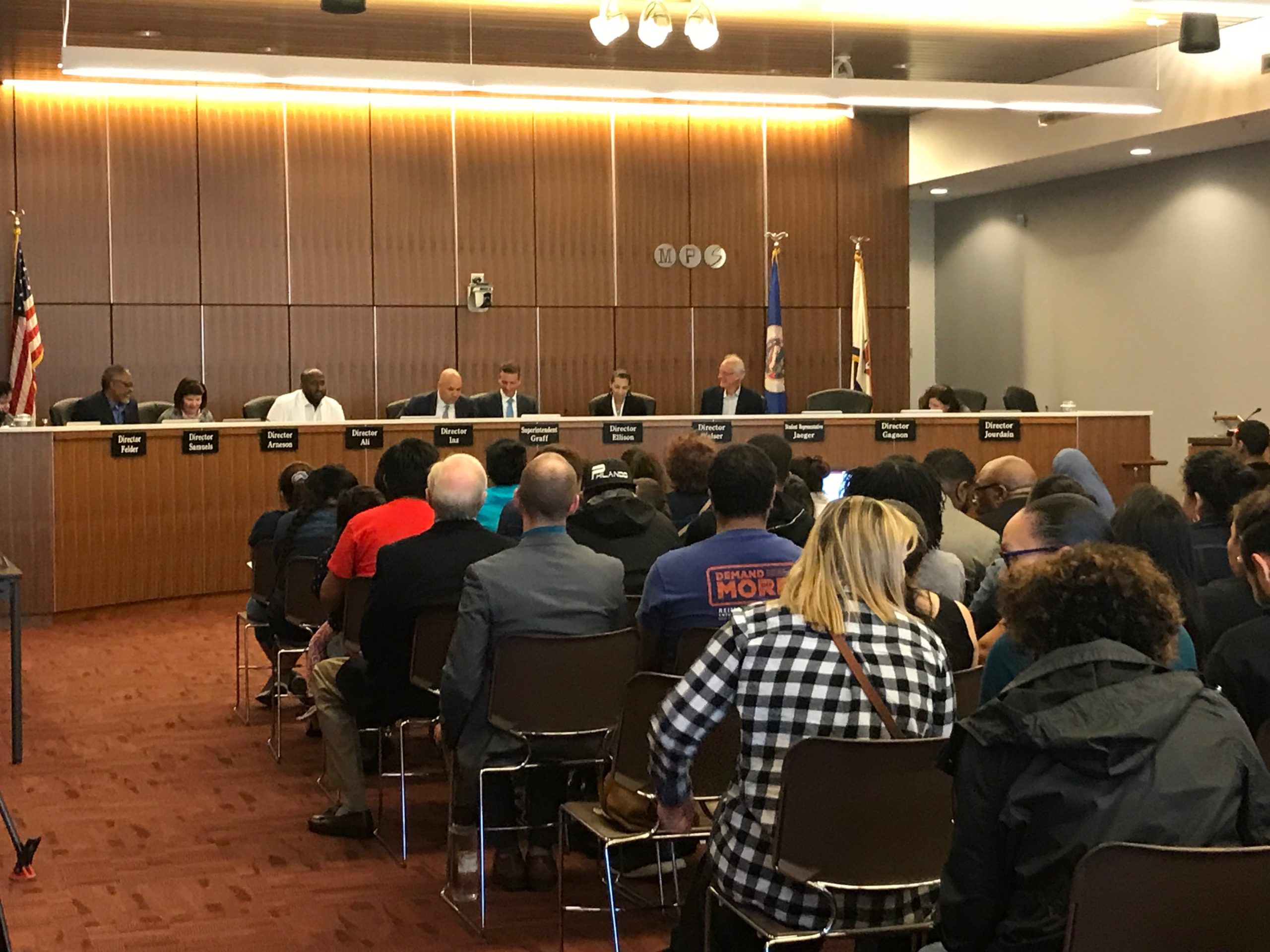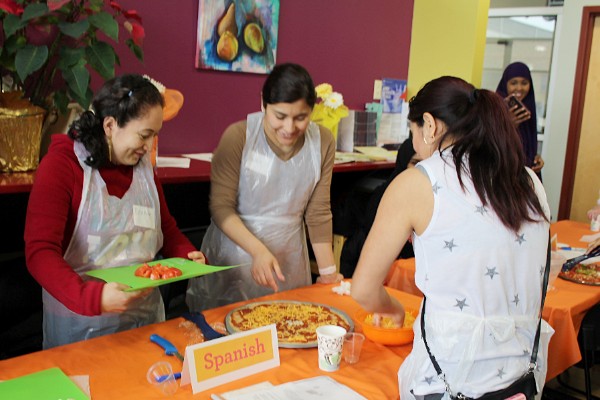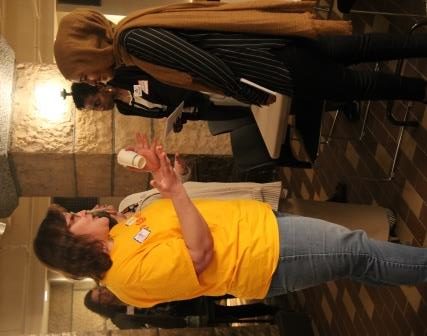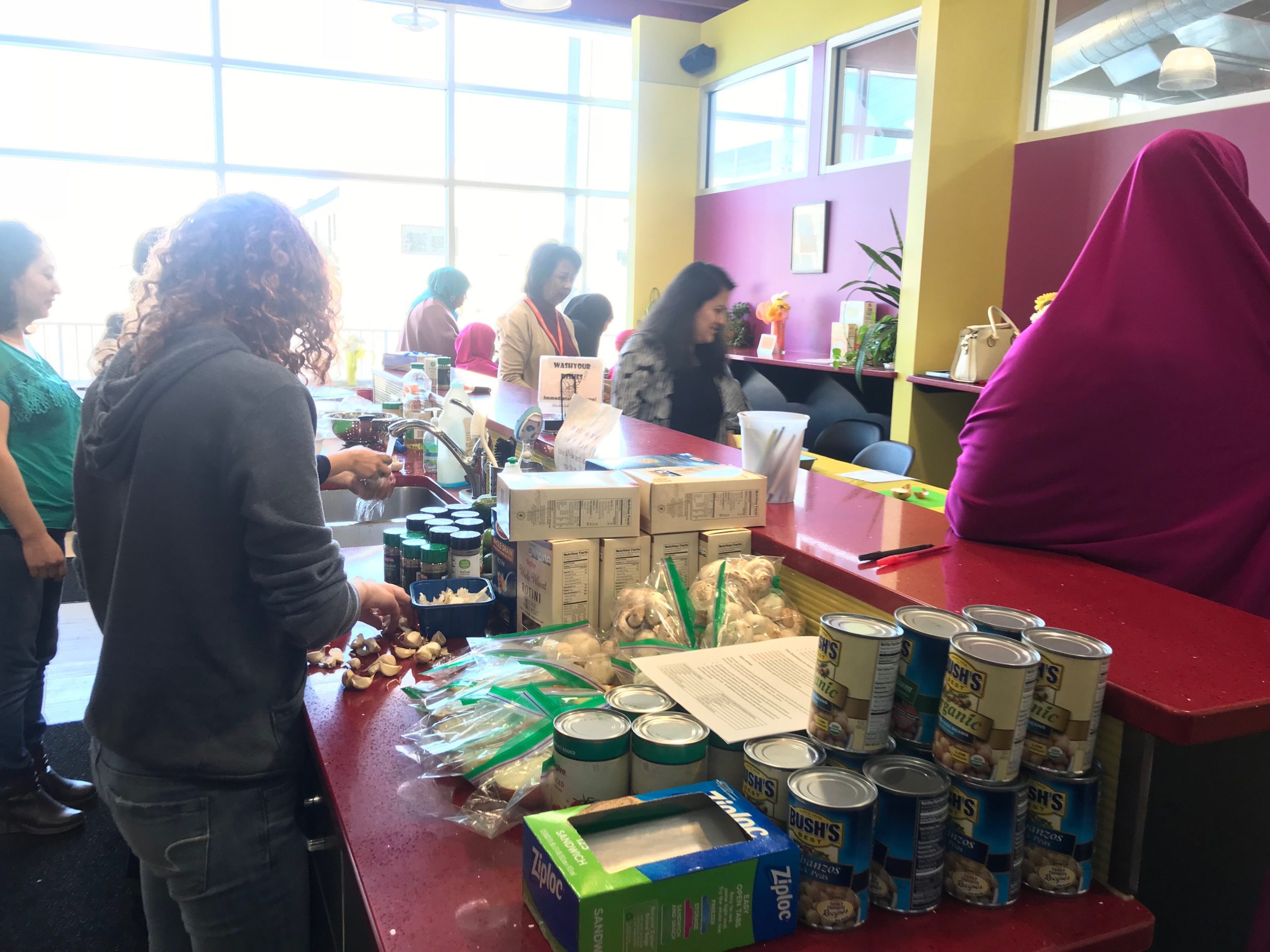Our newest employee at Way to Grow, Ken, recently attended a number of education events at the State Capitol. Still learning all of his new coworkers, he assumed Deborah was on staff and just doing her job as she participated like a veteran advocate: Listening to speakers, talking to legislators, engaging with other attendees—she was doing it all. It was not until later that Ken learned that this amazing champion was not one of his colleagues but was instead one of our clients. Deborah may not work at Way to Grow, but she has become one of our most active parents and strongest voices for parent advocacy.
Referred to us by Healthy Families, Deborah brought her then five-year-old daughter Patty to Way to Grow in early 2015. Deborah herself had struggled in school and was a victim of bullying as a child. Looking back, she realizes this deeply affected her confidence. As a mother, she was adamant about a creating a better life for her daughter and knew she needed resources to help make that happen, especially considering Patty’s specific needs.
Patty has a genetic abnormality that affects her ability to communicate and concentrate. “She struggles with learning, but she has such a high level of empathy,” said Collette, their Way to Grow Family Educator. Determined to support her daughter in every possible way, Deborah constantly researched and contacted resources to help Patty progress and grow. “I could not sit down and not do anything,” she explained.
After being enrolled in Way to Grow for two years, the family was assigned to Collette, and there was an instant connection. Both she and Deborah feel they come from similar experiences, making the connection between the three of them so strong. After three years of working with the family, Deborah now refers to Collette as a “godsend” because she has been such a great advocate for her and Patty. When asked to explain her definition of an advocate, Deborah notes, “An advocate is someone that has your back and stands with you. They make things happen for you if you can’t, and they also push you when you need to do things for yourself.”
Collette has worked with Deborah and Patty in their home during regular home visits, and the two have seen exponential growth in Patty. Moved by her daughter’s progress and what it has done for her family, Deborah realized she could help other children and families just like hers. That is why she decided to become an advocate not only her own child but for other vulnerable children as well.
In 2017, through funds from MN Comeback, Way to Grow developed My Voice Matters, a parent engagement and advocacy initiative that involves parents in advocacy and empowers them to make the right choices for their children. This past fall, Way to Grow hosted a Parent Champion Workshop Series that included four listening sessions and trainings entitled “Advocacy 101” and “Ready for Elementary.” Along with over 100 other parents, Deborah attended each session, learning how to be an advocate in Patty’s schools, her community, and in public policy.
Empowered by her relationship with Collette and her growing advocacy skills, Deborah found herself becoming a stronger parent champion for her daughter. “We were in an individual planning meeting and I felt like the interviewers were ignoring me. I felt left out and neglected until I went back to what I had learned and inserted myself into the conversation, telling them that I wanted her tested from head to toe.” Deborah had become a true Parent Champion.
It wasn’t long until she got involved at the policy level. In February, Deborah attended the 2018 Children and Youth Issues Briefing in St. Paul. “I felt scared going in; I had to text a friend,” she said, reflecting on the morning. “It is so easy to shut down when in a place like that. I’ve been there, but I know we need more parents involved; I told myself ‘We need more of this.’”
A few short weeks later, she joined the Way to Grow contingency at the 2nd Annual Voices and Choices for Children Day on the Hill at the Minnesota State Capitol. Not missing a beat, she immediately started meeting people, sharing her stories and experiences, and became a part of conversations. “I knew there were some important people in that room,” Deborah explained.
When asked what she has noticed about herself throughout this process, Deborah choked up and said she has seen a lot of change in herself. Reminded of her definition of an advocate, she was asked if she considered herself to be one. Deborah looked up and simply replied, “I never thought about it like that. Yes, I guess I am. I have learned to stand up for the things that Patty and I need.”
Deborah’s hopes for the future are that people with influence and ability in education will listen to parents and do what is best for children. She told us that she will continue to attend events and call and e-mail her legislators when it comes to important education matters and initiatives. She is already planning to attend the Advocacy for Children Day on March 29th at the Capitol.
For any other parent thinking about getting involved, Deborah had some advice: “You have to do it. Things will not happen for your child, and they will fall through the cracks. I want others to know there is help. There are people that will help, but you have to show up and be consistent. You can do it for your baby.” That statement got little Patty in the conversation with an enthusiastic, “Yeah, you can do it!”
Deborah is an amazing addition to our parent champions at Way to Grow and is part of a growing community of engaged families. “It is good to know I am not the only one. I am stronger because I have Way to Grow in my corner,” she explains.
Deborah, all of us at Way to Grow are stronger because we have parents like you in our corner.







